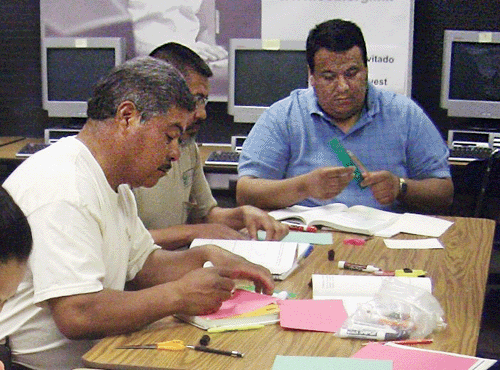Education is the key to getting ahead. That’s why Mexico’s Institute for Mexicans Abroad (IME) teamed up with the University of California to start a grants program aimed at providing educational opportunities for first-generation Hispanics in the United States.
Launched in 2005, the government-run IME awards $900,000 annually in education scholarships for immigrant students or in stipends for the tutors and advisors that teach literacy workshops and other basic education courses. Thirty percent of the IME funds can be allocated toward teaching materials. This is one way that Mexico is supporting the integration of its estimated 12.7 million immigrants currently living in the United States. Donations from U.S. corporations and individuals complement the IME awards. Last year, these donations totaled $154,000.
So far, more than 20,000 people have benefited from IME grants. One recent beneficiary is Alejandro Hernández Rojas, a 31-year-old immigrant who lives in Houston, Texas. After completing an IME-supported literacy program, Hernández can now help his daughter with her schoolwork. The result? “I know that she is proud of me,” he says. The life of another Houston resident, Feliciano Oliva Villanueva, 51, was changed by the basic education courses sponsored by the program. After 30 years as a temporary worker, Oliva now proudly declares, “I feel self-sufficient.” Like Hernández and Oliva, for many immigrants, basic education is an aspiration and a critical step toward their goals of contributing more to society. With IME, achieving this dream is now a greater possibility.
To find out more, visit www.imebecas.org.






